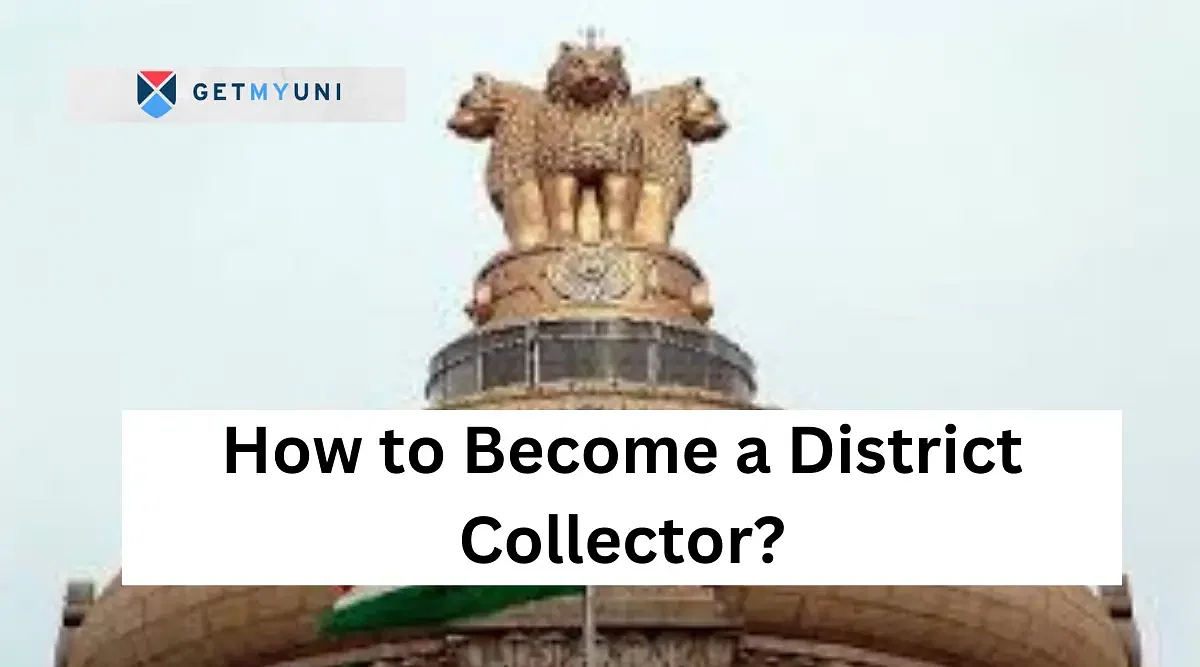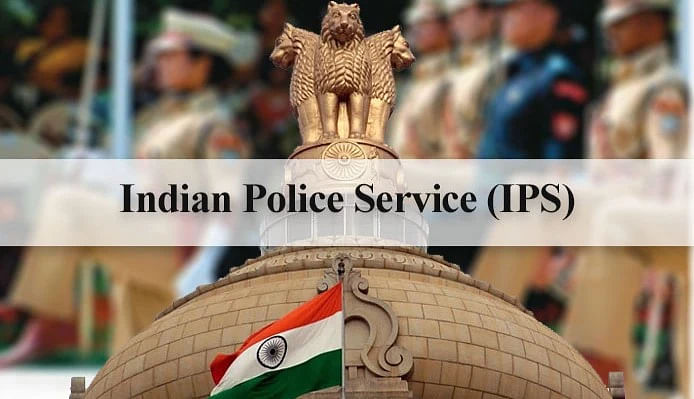Prepare for your IAS interview with a comprehensive list of commonly asked IAS interview questions and answers. Boost your confidence and increase your chances of success with this valuable resource.
Table of Contents
The Union Public Service Commission recruits for government bodies such as Indian Administrative Services, Indian Foreign Service, and Indian Police service through an entrance exam. For the benefit of candidates, we have listed around 25 IAS interview questions and answers, which will equip candidates with a better understanding of the interview pattern.
| UPSC IAS Application Form 2023 | UPSC IAS Syllabus 2023 |
IAS Interview Questions and Sample Answers
Qualified candidates have to appear for the Interview round, in which a panel will Interview the candidate for final selections by asking a few ias interview questions.
Apart from the fundamental questions of "Tell us something about yourself?", "What are your career goals?" etc., there are some tricky ias interview questions that the interviewer might present to candidates during the PI round.
Also Check: IAS Preparation 2022 - Important Topics, Syllabus, Exam Pattern & Best Books
Question 1: What are your future career goals?
Answer 1: In the future, I am keen on expanding my knowledge of the political structures and democracy of India and the world. If allowed to work as an IAS officer, I would like to work alongside the Government with policies that impact the labour market. Besides, I aspire to work as a District Magistrate and manage law and order, manage crises and positively impact the community.
Question 2: Differentiate between "Vision", "Mission", "Aims", and "Objectives.
Answer 2: I would like to answer the question using an example. The Government can have a Vision that Governance reaches the last person, the poorest man. Mission, on the other hand, is the strategy to channel the vision. At the same time, aims and objectives are aligned with the mission's long-term and short-term goals or results.
Question 3: What is your understanding of Terrorism, Militancy, Fundamentalism and Insurgency?
Answer 3: Terrorism uses violent, verbal or symbolic methods to create terror and fear in people's minds. Militancy is the use of violent methods to achieve a political purpose. Insurgency is a violent protest against the state or any authority. Lastly, fundamentalism is sticking to an ideology while excluding or dismissing other ideologies. This can be based on religion, region, caste, ethnicity, or other ideas.
Question 4: Why did you select XYZ as your optional subject?
Answer 4: I chose XYZ as an optional because, I have previously studied the subject, and wanted to further expand my knowledge in XYZ. Even though it is a tricky subject, I decided to go ahead with it, as it holds relevance to the UPSC post I am applying for.
An honest and straightforward answer to this ias interview questions is what the panel is looking for, from the candidate.
Question 5: If 2 is a company and 3 is a crowd, what will 4 and 5 be?
Answer 5: 4 and 5 will always be 9. I have come to the conclusion, after adding both numbers, as there is no idiom related to 4 and 5 t
These types of IAS Interview Questions test the intelligence of candidates.
Also Check: How to Become an IAS Officer?
Question 6: A man was sentenced to death. He was directed towards three rooms. The first room was on fire, the second had a killer with a rifle, and the third had a tiger who hadn't eaten in three years. Which room should he select?
Answer 6: Room three, because the hungry tiger would have died by now.
Question 7: What does half an apple look like?
Answer 7: Like the other half of the apple.
Question 8: If you have three apples and four oranges in your left hand and four apples and three oranges in your right, then what will you have?
Answer 8: Huge hands.
These types of IAS interview questions test if the candidate is quick-witted.
Question 9: A person was born in 1935 and died in 1935, but how was he 70 years old at the time of his death?
Answer 9: The man was born in 1935, and the room number of the hospital in which he died was 1935 (room number 35 on the 19th floor), and he was 70 at that time.
Question 10: What will happen if you drop a red stone in the blue sea?
Answer 10: Since the stone is heavy and wet, it will sink to the sea's surface.
Also Check: IAS Officer Salary 2023: PayScale, Allowance & In-hand Salary
Question 11: Which hospital is named after the Viceroy's wife?
Answer 11: Elgin is built after the wife of the Viceroy of Central India. At present, it is known as Rani Durgavati Hospital. This is also the first hospital in Jabalpur.
The above-mentioned IAS interview questions test the general knowledge of the candidate.
Question 12: Why do lawyers wear black coats?
Answer 12: Black coat reflects discipline and confidence. Hence, lawyers wear black coats.
Question 13: Who is the first female IAS officer of India?
Answer 13: Anna Ramjan Malhotra is the first female IAS Officer of India.
Question 14: Who was the first Home Minister of India?
Answer 14: Sardar Vallabhbhai Patel was the first Home Minister of India.
Question 15: What is the centre of gravity?
Answer 15: The letter "V".
Answer these kinds of ias interview questions, can be tricky, Candidates can opt to answer them in a witty manner or a generic format.
Also Check: IAS Book List - Best Books Recommended by Toppers
Question 16: How can a man go on eight days without sleep?
Answer 16: He sleeps at night, which is why he can go wihout any sleep for eight "days".
These kinds of IAS interview questions are brain twisters. The trick is to listen to the question carefully and give an uncomplicated answer.
Question 17: Eight people took 10 hours to build a wall. How many days will it take four people to make?
Answer 17: Since the wall is already built, there is no need to make the wall.
Candidates are tested on their ability to think creatively with these ias interview questions
Question 18: Name three consecutive days without using actual days.
Answer 18: Yesterday, today and tomorrow. These are three names of without using actual days.
Question 19: A person was pushed out of an aeroplane without a parachute. How is it possible that he ended up surviving?
Answer 19: The aeroplane was either on the runway or the hangar, which is why he survived even after being pushed out of the aeroplane.
Question 20: How many minutes compose a year?
Answer 20: A total of 5,25,600 minutes are there in a year.
Question 21: Name the first person to get an Aadhar Card in India.
Answer 21: Ranjana Sonawane is the first person to get an Aadhar Card in India.
Question 22: Can you name the railway station, which is half in Maharashtra and half in Gujarat?
Answer 22: Navapur Railway Station is the railway station which is divided between the states of Maharashtra and Gujarat.
Question 23: What is the difference between the Rule of Law and the Rule by Law?
Answer 23: Rule of Law is a British Concept which indicates equality before the law and equal access to law, whereas rule by law is when governing is per the legislature or administrative regulations. The rule of law implies that the Government should conduct itself per the law and within its limit.
Question 24: Where would Lord Rama celebrate his First Diwali?
Answer 24: Diwali is celebrated to mark the killing of Narakasura by Lord Krishna. Per literary history, Krishnavathaar came after Raamavathaar; hence it is not possible that Lord Rama ever celebrated Diwali.
Question 25: Can you drop a raw egg onto the concrete floor without cracking?
Answer 25: Concrete floors are hard. Hence the egg won't be able to break the floor.
Conclusion
Before appearing for the interview candidates must be prepared to handle difficult ias interview questions. Practising before the main interview day, will equip candidates to tackle tricky situations, moreover they will get familiar with the pattern of questioning.



















POST YOUR COMMENT